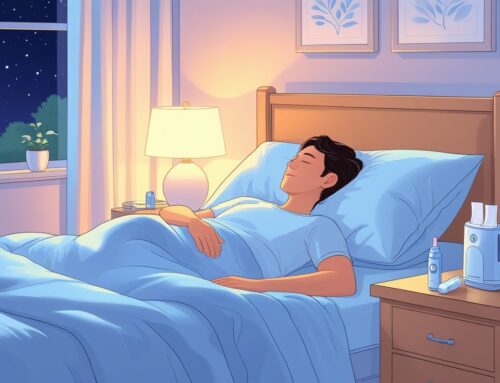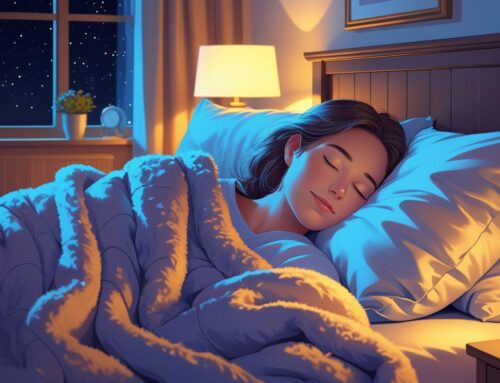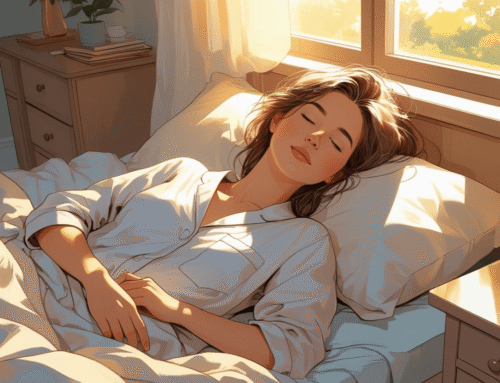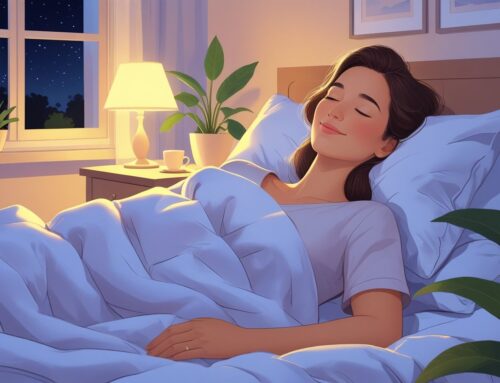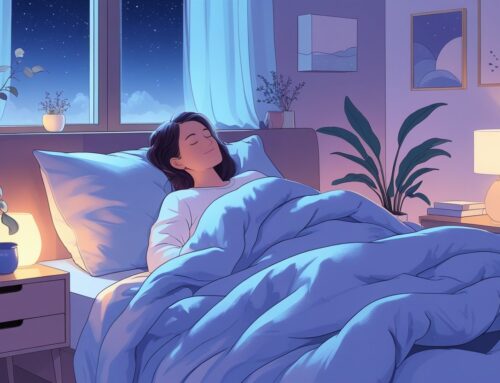When you’re sleep deprived, the right nap can help. A nap of 90 to 120 minutes usually works best because it lets your body go through a full sleep cycle. This includes deep and REM sleep, which helps your body and mind recover more fully. Short naps of 10 to 20 minutes can give a quick energy boost, but they don’t replace lost sleep. Naps that are too long or taken at the wrong time can make it harder to sleep at night. Knowing the right length helps you recover without messing up your nighttime rest.
Key Takeaways
- Longer naps of about 90 minutes support full sleep cycles and better restoration.
- Short naps can boost alertness but may not fix severe sleep loss.
- Timing naps properly prevents sleep disruption at night.
- A good mattress can make naps feel more refreshing. Even if you’re short on sleep, it helps you wake up less groggy and more alert.
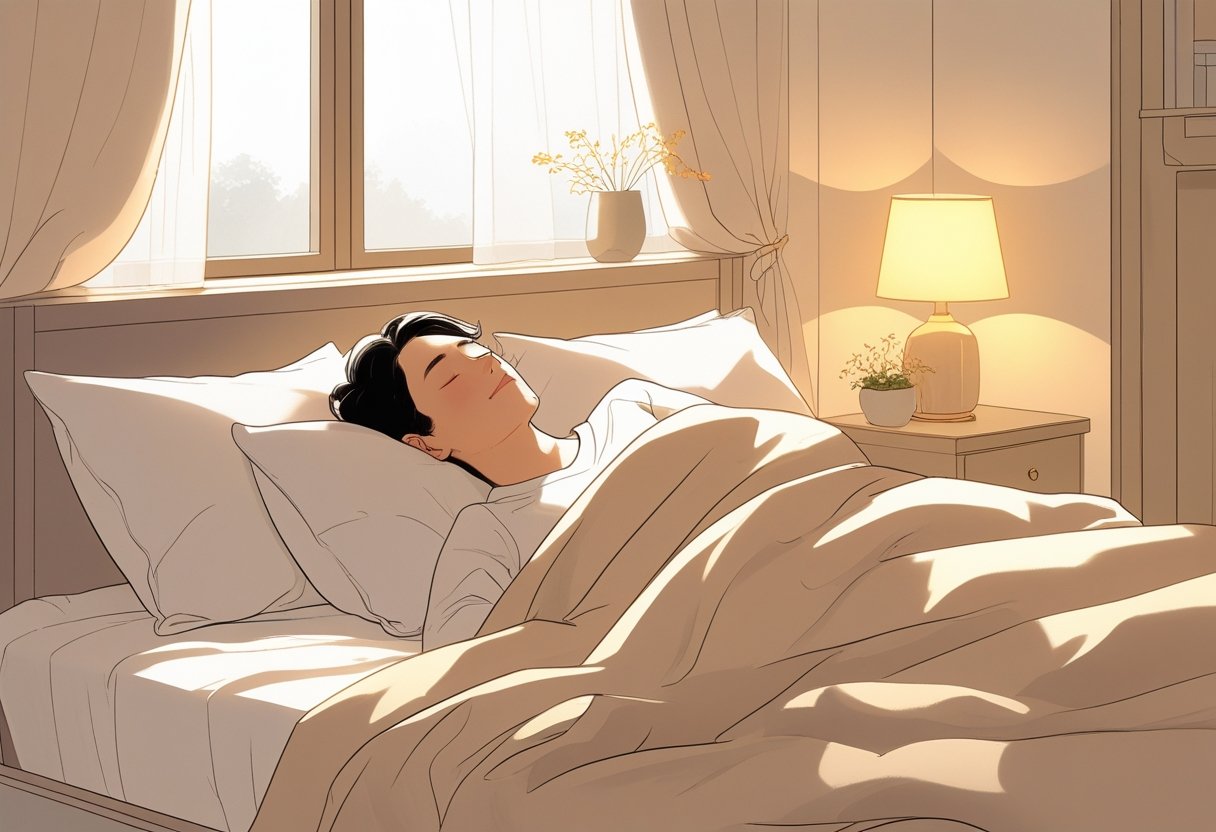
Understanding Sleep Deprivation and Nap Needs
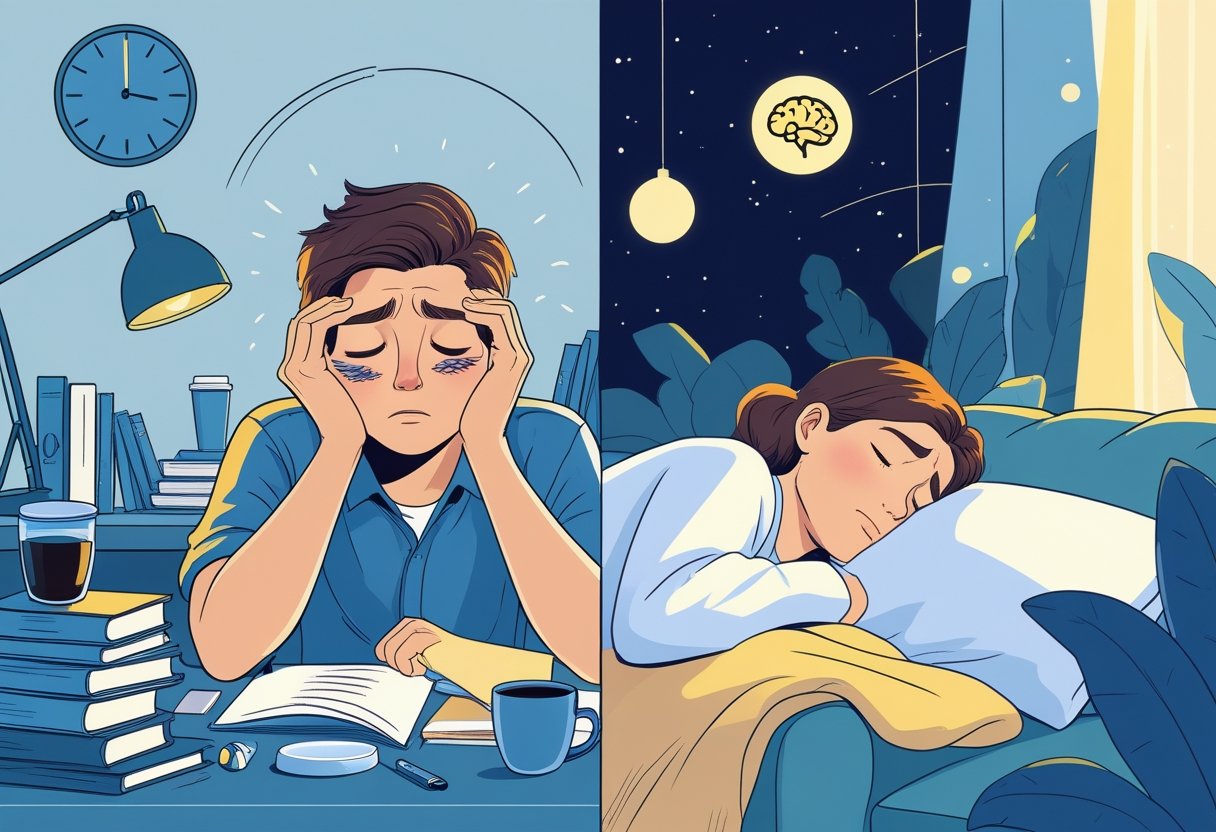
Not getting enough sleep makes it hard to focus and can leave the body weaker. It often causes tiredness, forgetfulness, and lower productivity. Naps can help, but only if they fit what your body needs.
Causes and Consequences of Sleep Deprivation
Sleep deprivation happens when you don’t sleep enough or your sleep is poor. Stress, long work hours, irregular schedules, or health issues are common causes. Skipping sleep affects energy, mood, and memory. Most adults need 7-9 hours a night. Without it, thinking clearly and reacting fast becomes harder. Over time, it can also increase the risk of heart problems, diabetes, and weight gain.
How Napping Helps Counteract Sleep Loss
Taking a nap can give a quick lift to alertness and mental focus. Naps range from 10 to 90 minutes depending on your situation. A short 20-minute nap can improve focus without making you groggy. A longer 90-minute nap allows a full sleep cycle, which helps memory and emotional balance. Early afternoon naps work best because they don’t interfere with nighttime sleep.
Ideal Nap Lengths for the Sleep Deprived
Being sleep deprived makes naps challenging. The right length can refresh you without messing up your night sleep. Two options usually work best: short naps to wake you up quickly and longer naps that cover a full sleep cycle.
Power Naps: 10 to 20 Minutes
A nap of 10 to 20 minutes is ideal if you just need a boost. It keeps you in light sleep, so waking up is easy and you don’t feel groggy. Short naps avoid deep sleep, which causes that heavy, disoriented feeling. Even a quick 10-20 minute rest can improve focus, mood, and alertness without slowing you down.
Full Sleep Cycle Naps: 90 to 120 Minutes
Longer naps last 90 to 120 minutes and let your body go through all stages of sleep: light, deep, and REM. This gives you more complete rest. Finishing a full cycle means you wake up refreshed. These naps are good if you have time, but they can make falling asleep at night harder. Which nap works best depends on your schedule and tiredness. Either a short 10-20 minute nap or a 90-120 minute full cycle nap usually gives the best results.
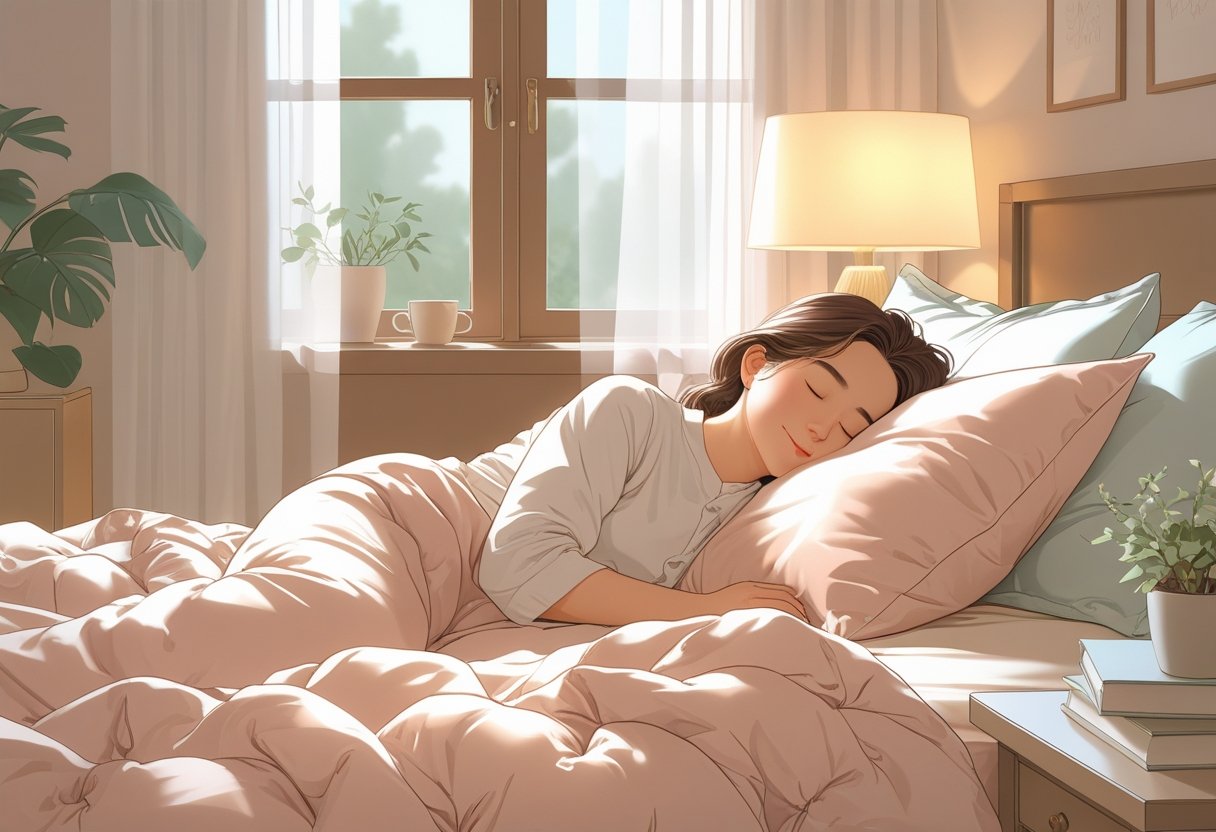
Sleep Cycle Stages and Their Role in Napping
Napping moves you through different sleep stages, and each stage affects your body and mind differently. Picking the right nap length can help you feel refreshed without that groggy feeling. Knowing a bit about light, deep, and REM sleep can guide how long your nap should be.
Light Sleep Versus Deep Sleep
Light sleep is the first stage. Your body relaxes, your brain slows down, and it’s easy to wake up. Naps around 10 to 20 minutes mostly keep you in this stage. They give you a quick boost in alertness and energy without leaving you confused or tired.
The Importance of REM in Recovery
Deep sleep comes after light sleep. Your brain slows even more, and your body focuses on repair and immune support. But if you wake up in deep sleep, like in a 30 to 80-minute nap, you can feel groggy and disoriented. Shorter naps avoid this problem.
REM sleep is where your brain is active, almost like when you’re awake. It helps with memory, learning, and emotional processing. Naps lasting 90 to 120 minutes can go through light, deep, and REM sleep, giving fuller rest and better mental clarity. For those behind on sleep, hitting REM can help catch up. But long naps can interfere with nighttime sleep, so you need to balance nap length with your overall rest.
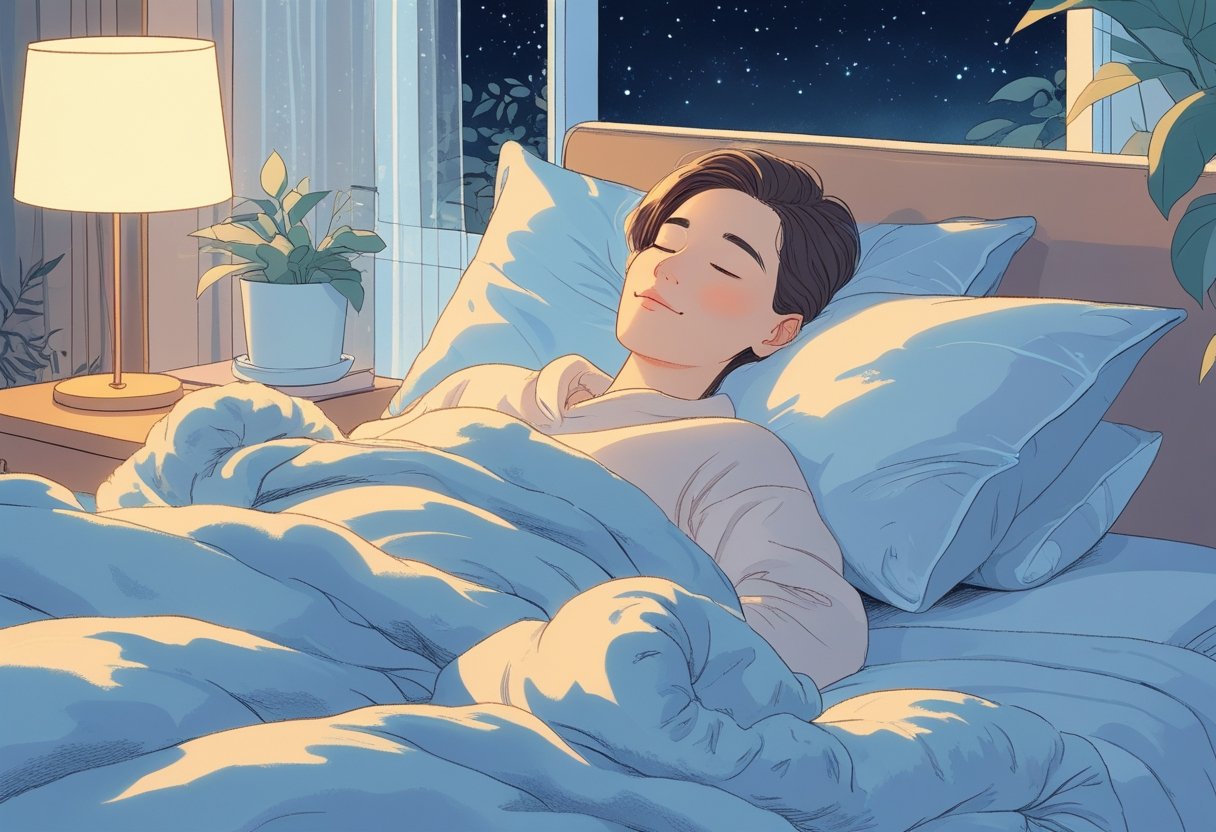
Timing and Frequency of Naps
Naps work best when they match the body’s natural rhythms. The time of day and how often you nap can change how refreshed you feel. Napping at the right time can boost alertness without messing up your sleep at night.
Optimal Time of Day to Nap
The best time to nap is usually early afternoon, around 1 to 3 PM. Many people feel a natural dip in energy after lunch. A short nap during this time can improve focus and mood without making it harder to fall asleep later. Napping too late, especially after 4 PM, can push bedtime back and reduce sleep quality. A quiet, dark, and cool room helps you fall asleep faster and get the most out of your nap.
Recommended Nap Frequency for Sleep Deprived Individuals
If you’re sleep deprived, one nap a day is usually enough to feel more alert. Taking multiple naps may help in cases of severe sleep loss or shift work, but they should be short, about 20 minutes, and spaced out. Sticking to a regular nap routine lets your body adjust and get the full restorative benefits without interfering with nighttime sleep.
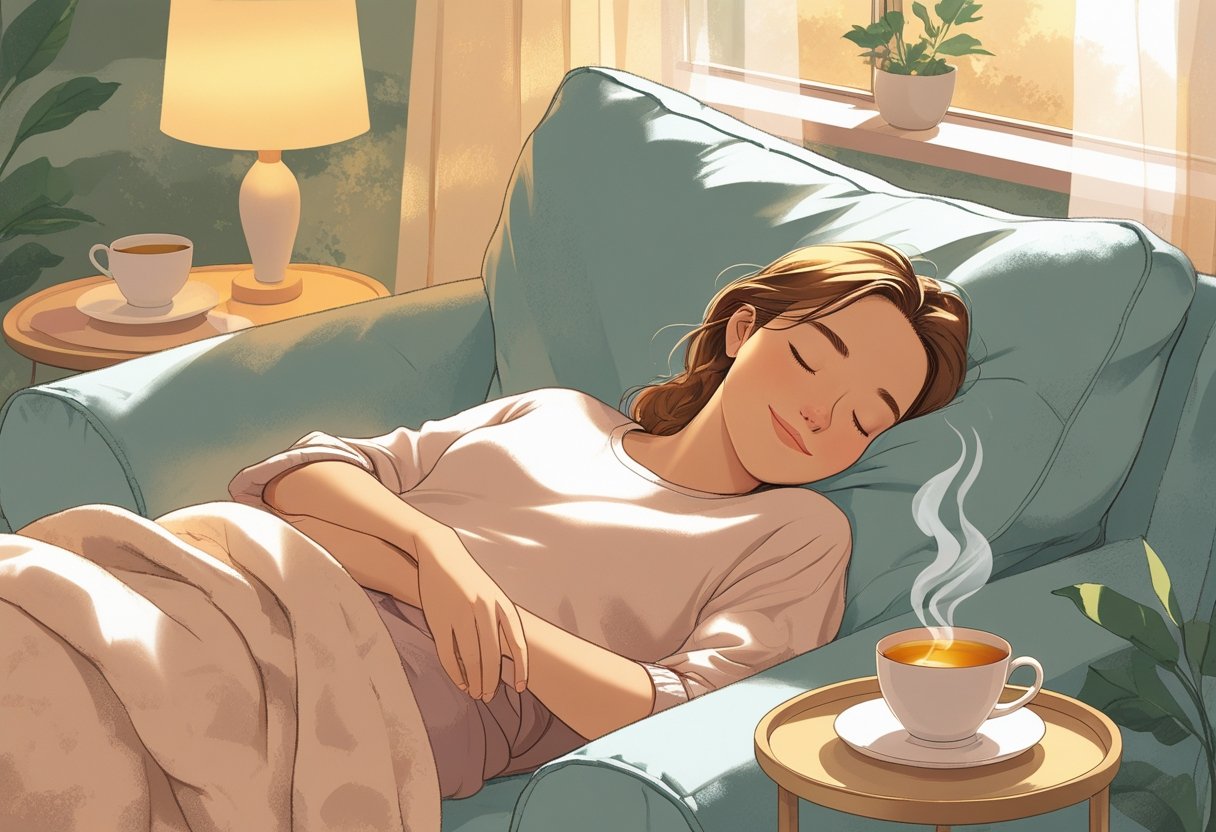
Tips for Effective Napping When Sleep Deprived
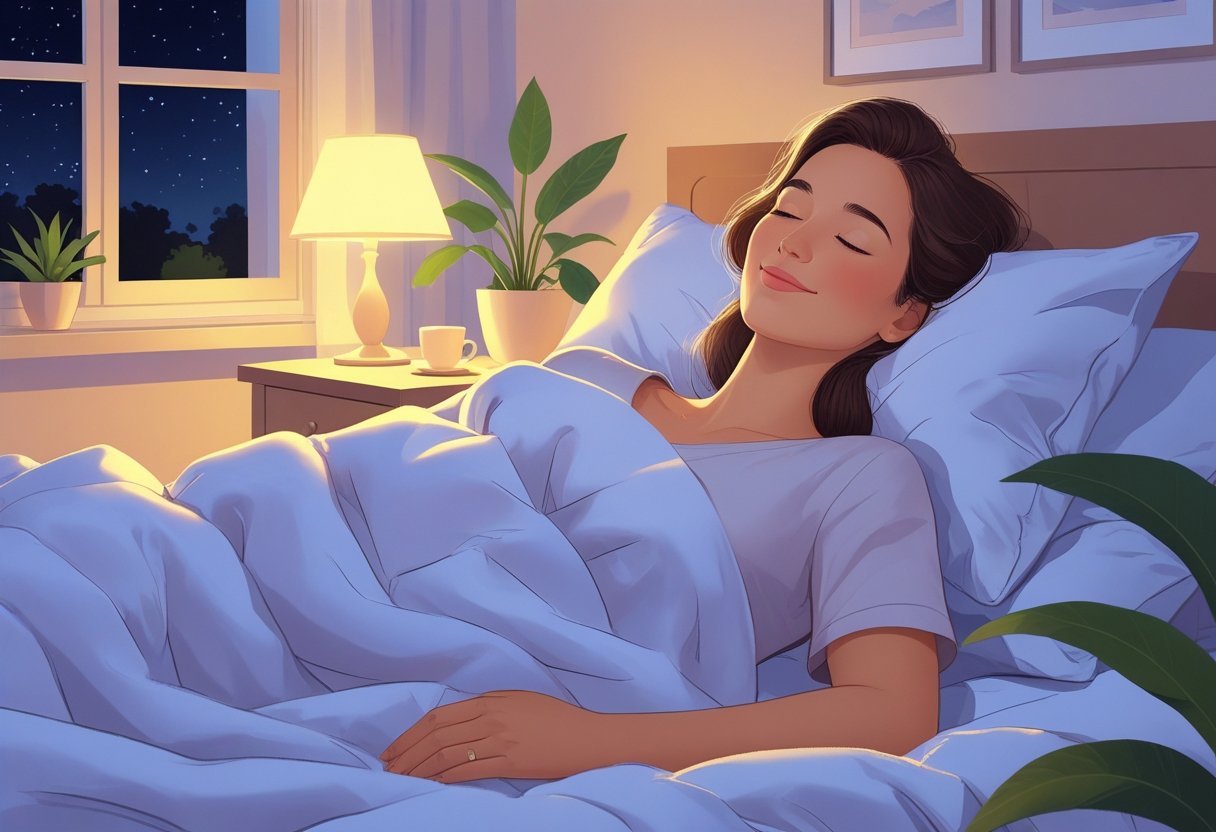
Getting a good nap when you’re sleep deprived takes a bit of planning. The right environment, smart use of caffeine, and timing can make a nap refreshing instead of leaving you more tired. These steps help you recharge without messing up nighttime sleep.
Creating a Restful Nap Environment
A quiet, dark, and cool space makes it easier to fall asleep and stay asleep. Blocking noise with earplugs or white noise can help, and an eye mask or blackout curtains reduce light that might wake you. Comfort matters too. A soft chair or bed and loose clothing let your body relax. Turning off phones and other distractions also helps you get deeper rest.
Early afternoon is usually the best time for a nap because that’s when your body naturally feels a dip in energy. Napping too late in the day can make it harder to fall asleep at night.
Using Caffeine Strategically
Drinking caffeine right before a short nap can make you more alert afterward. This works best for naps that last 10 to 20 minutes. Since caffeine takes about 20 minutes to kick in, it starts working as you wake up. Caffeine should be avoided before longer naps or close to bedtime. People who are sensitive to it might want to skip this trick entirely. Using caffeine at the right time can help you feel less tired during the day without affecting night sleep.
Avoiding Grogginess After a Nap
Sleep inertia is that groggy feeling after waking from deep sleep. Naps between 30 and 80 minutes often cause this because they interrupt deep sleep. Keeping naps under 30 minutes or taking a full 90-minute nap can help prevent grogginess. Setting an alarm ensures you wake at the right time. After a short nap, sitting up and getting bright light exposure helps shake off drowsiness. Drinking water and doing light stretching also make it easier to feel alert. Planning your nap time and environment reduces the chances of feeling worse instead of better.
Special Considerations and Limitations
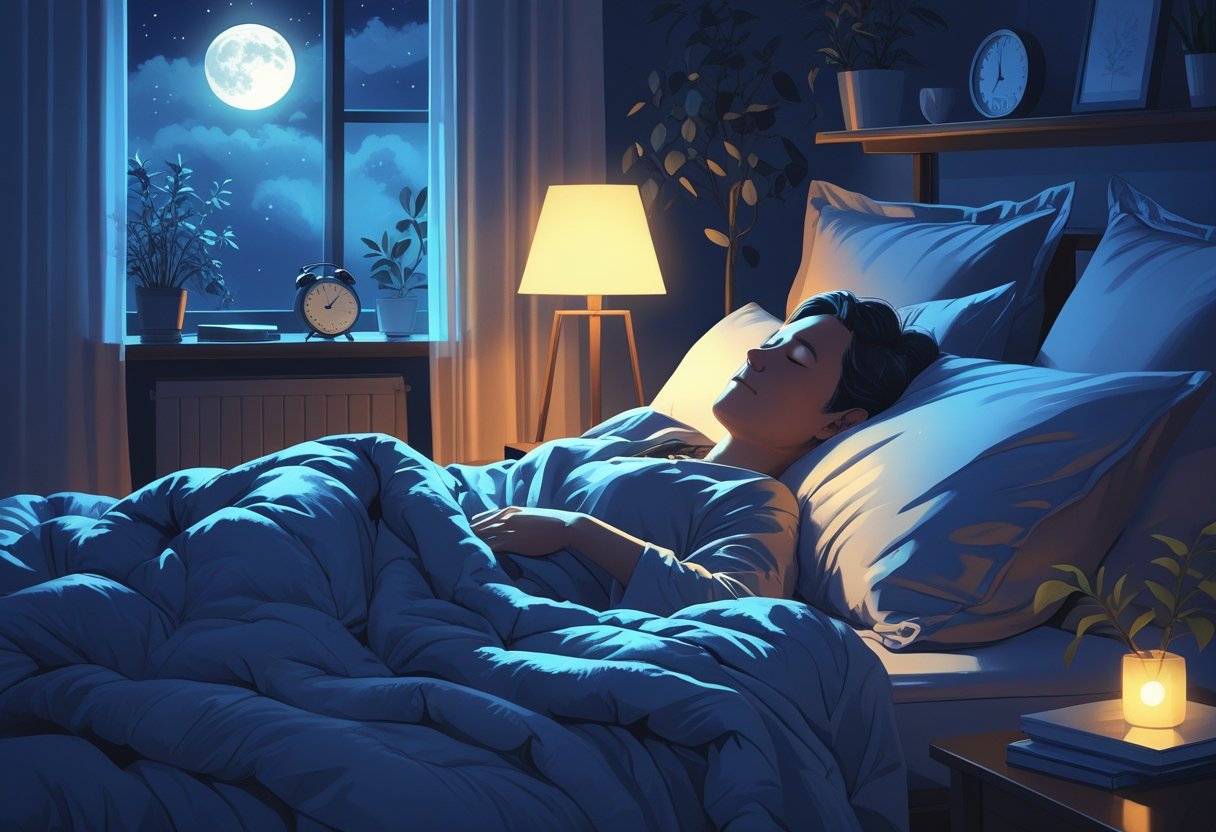
Certain personal and work factors change how naps work when someone is sleep deprived. Age, health, and unusual work hours can all affect how long a nap should be and how refreshing it feels.
Age and Health Conditions Affect Nap Needs
Older adults may need naps because their nighttime sleep is lighter or shorter. Short naps, around 10 to 30 minutes, help them feel alert without making them groggy. Health problems like sleep disorders, chronic pain, or medications can also change how naps affect a person. People with insomnia or sleep apnea might find that naps make nighttime sleep worse. It’s best for them to talk to a doctor before making naps a habit.
For anyone with health concerns, timing and nap length matter. A short nap at the right time can improve mood and focus. But longer naps or naps late in the day might disturb nighttime sleep.
Shift Work, Irregular Schedules, and Napping
People who work night shifts or irregular hours often struggle with sleep deprivation. Naps can help reduce tiredness and make it easier to stay alert. Shift workers may take several short naps or one longer nap of up to 90 minutes. Napping before or during a shift can prevent dangerous drowsiness.
Planning naps carefully is important. Poorly timed naps can leave you groggy or interfere with night sleep. Using naps as part of a consistent but flexible sleep routine helps. A quiet, dark, and comfortable place also makes naps more effective, even with irregular schedules.
The Right Mattress for Short and Restorative Naps
The quality of a nap depends on more than just how long you sleep. The surface you lie on matters too. A mattress that supports short naps can help you wake up feeling refreshed instead of groggy.
For naps under 20 minutes, a firm but slightly cushioned mattress works best. It keeps you from sinking too deep while letting your body relax briefly. This helps you stay in light sleep stages and avoid that sluggish feeling after waking. Longer naps, around 90 minutes, need a mattress that eases pressure. Proper support lets your body complete a full sleep cycle comfortably. Hybrid mattresses are good options because they mix softness with support.
Other things to look for include pressure relief to reduce discomfort, temperature control to keep the surface cool, and edge support to give more usable space.
A mattress that fits different nap lengths can improve energy and focus when you wake. Choosing the right mattress is just as important as picking the right nap time. The Saatva Classic mattress is one option that balances comfort and support. Its 3-inch Euro pillow top and dual-coil design give both cushioning and durability. It works for different nap lengths and sleeping preferences.
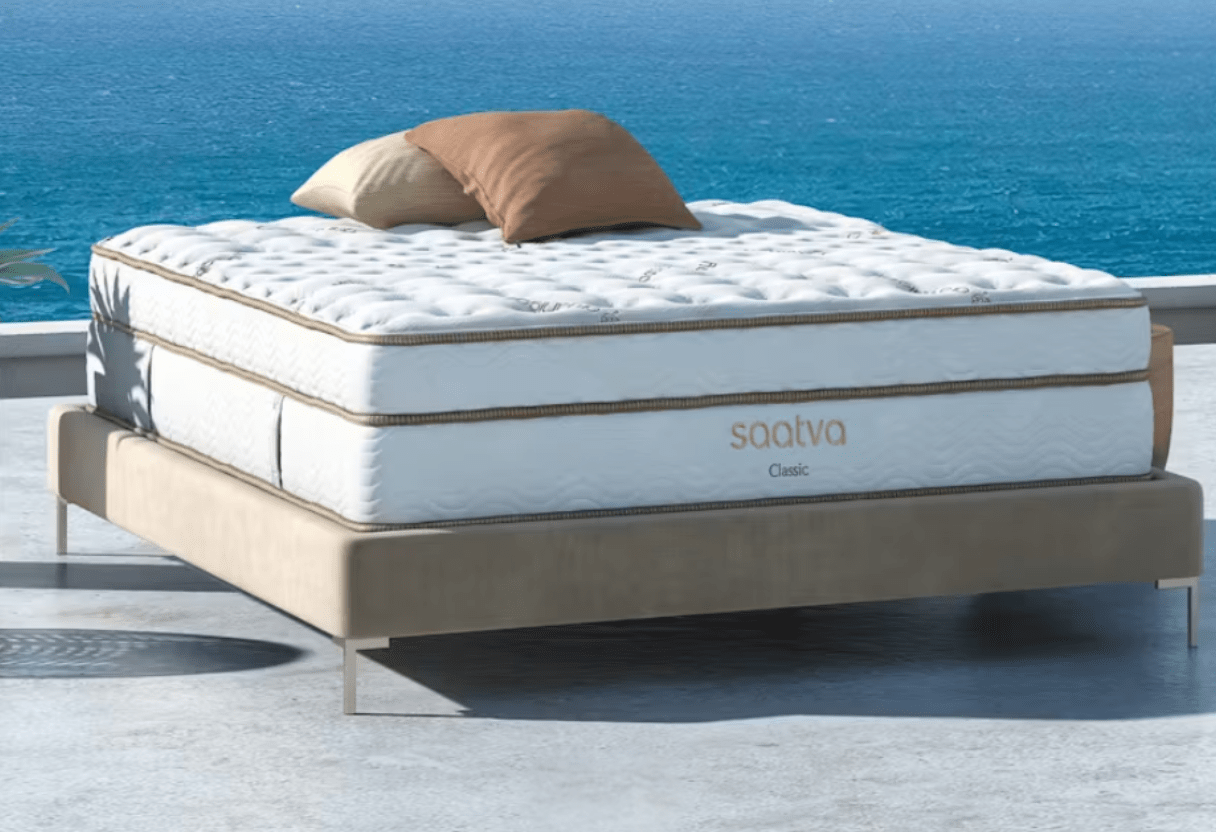
Frequently Asked Questions
Naps affect the brain and body in different ways. Short naps help you stay alert and recover quickly. Longer naps support memory, learning, and creativity. When and how long you nap can change your productivity and affect your sleep at night.

